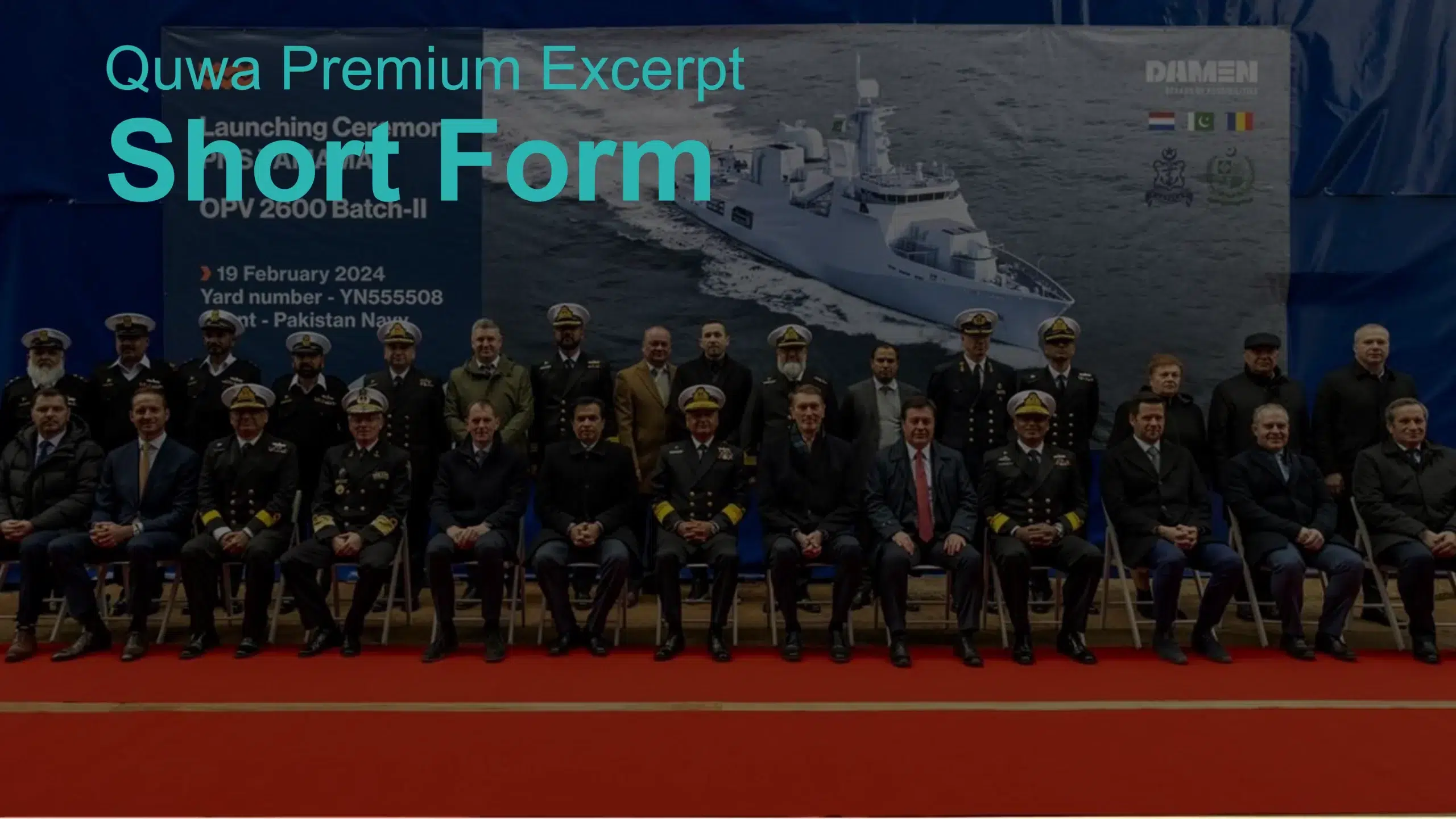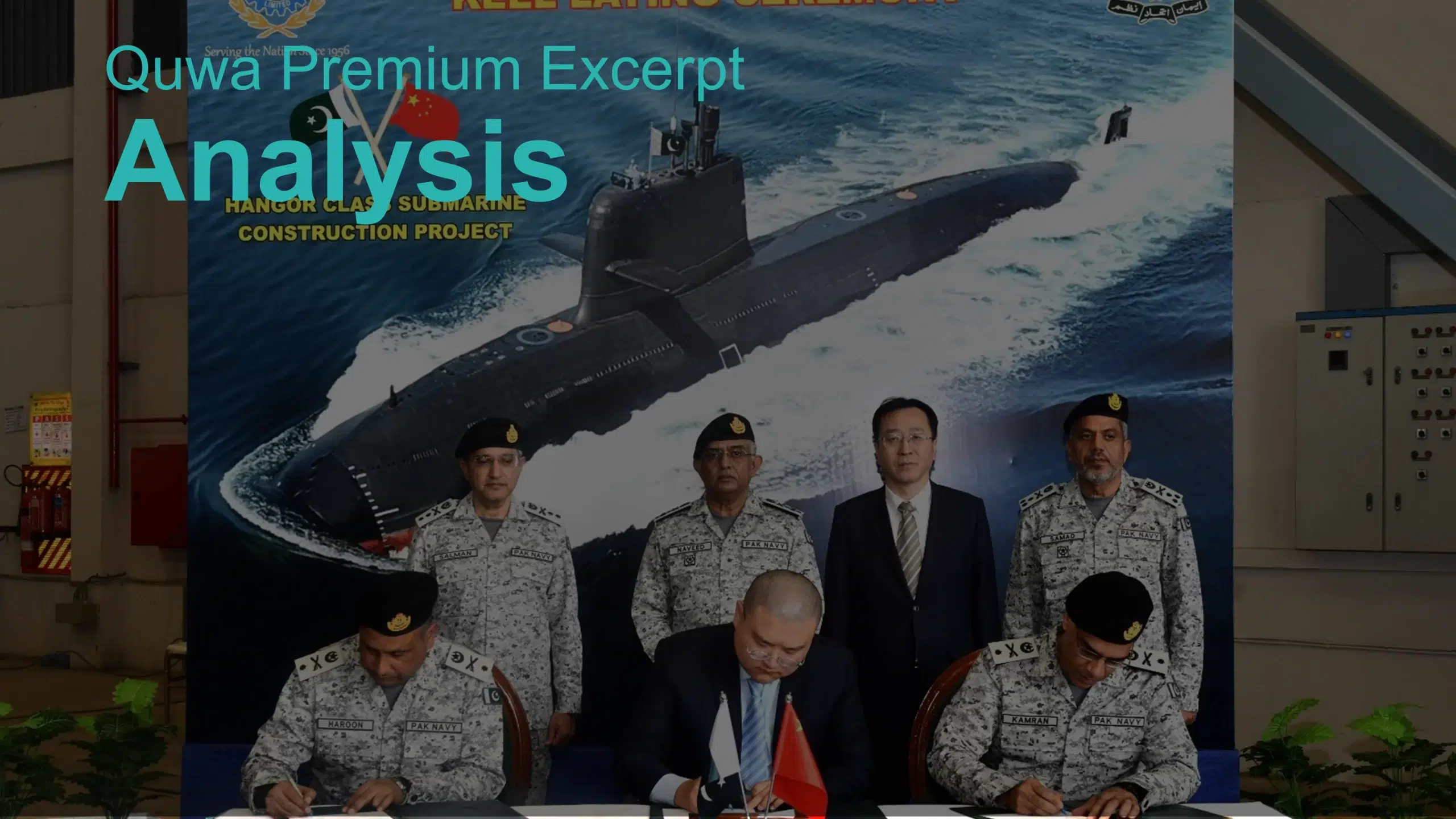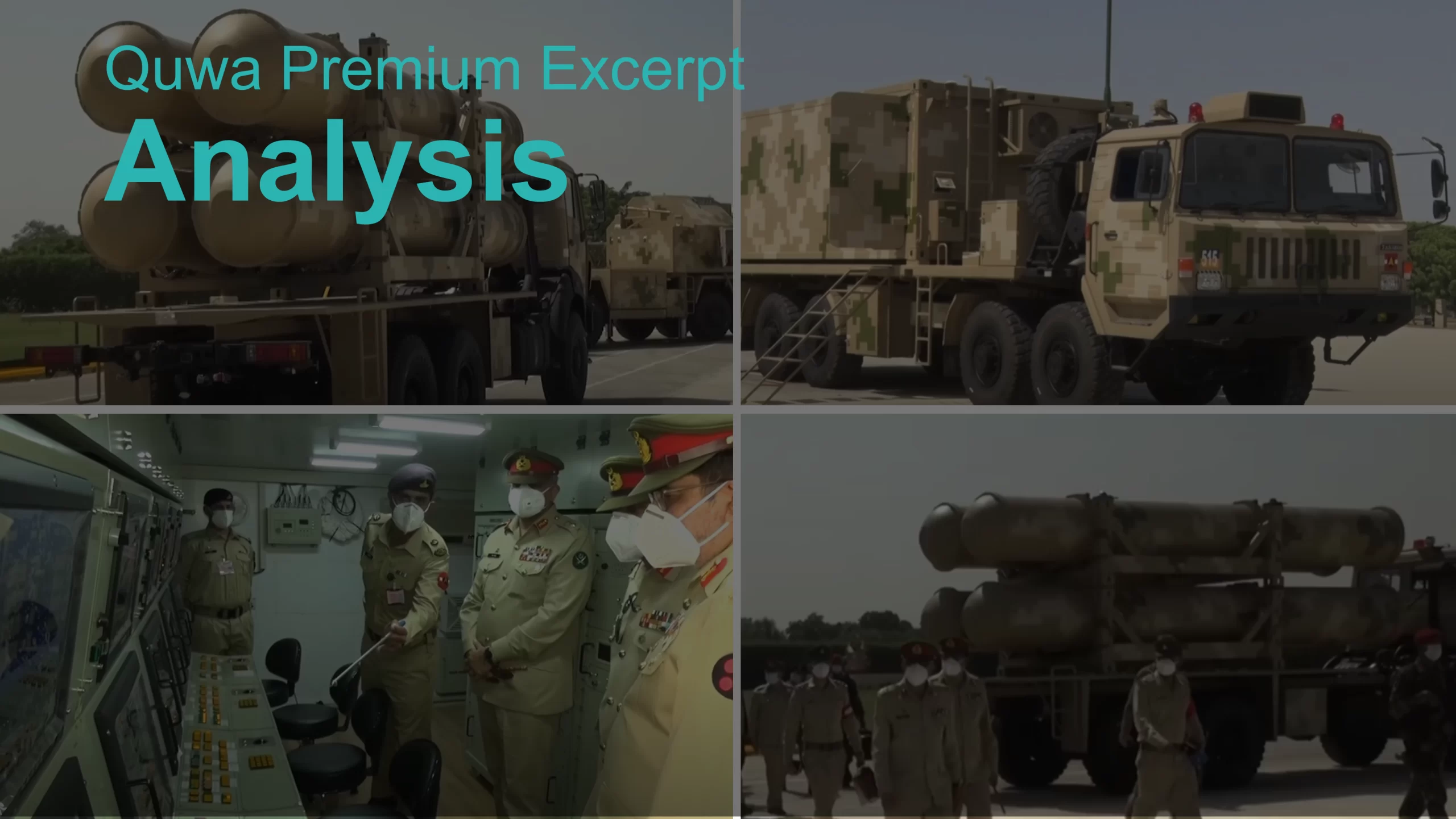The International Defence Exhibition and Seminar (IDEAS), which is bi-annually hosted in Karachi, Pakistan, is the country’s marquee defence procurements and industry event. IDEAS is also a sound reference point for understanding the direction of the Pakistani defence market, but IDEAS 2016, in particular, could be noted as a significant event in that it may have marked the beginning of several long-term realities that will shape the Pakistani armed forces’ future procurements and decisions.
This short series has been split into three parts.
Part-one covers Pakistan Ordnance Factories. Part-two offers a brief overview of the Pakistani private sector’s increased engagement in the Pakistani defence market. Part-three, which will be released in the coming week, will study Pakistan’s central suppliers and partners.
Private Sector Engagement
Several Pakistani private sector vendors, most notably Metal Engineering Works, Shibli Electronics, and Blitzkrieg Defence Solutions, have entered Pakistan’s procurement mix as real factors.
Interestingly, the local private sector is not a new entrant in Pakistan’s defence industry, a few companies had been engaged with their public-sector counterparts and the armed forces for roughly 20 years. However, these vendors, such as Integrated Dynamics, accounted for minor portions of the armed forces’ procurement, especially since their applications (especially in the case of Integrated Dynamics) would be very specific and low in scale (in comparison to armoured vehicles and small arms).
In IDEAS 2016, it was apparent that Pakistan’s private sector had become eager to access a larger portion of the armed forces’ requirements. For example, Blitzkrieg Defence Solutions marketed its Hamza 8×8 multi-role armoured vehicle (MCV), which takes aim at multiple Pakistan Army requirements, namely the need for an 8×8 wheeled-armoured personnel carrier and mine-protected ambush-protected vehicle. In addition, Metal Engineering Works partnered with the Spanish automaker URO Vehículos Especiales, S.A. (UROVESA) to offer the VAMTAC ‘High Mobility Tactical Vehicle.’ The VAMTAC could be positioned as a general-purpose utility vehicle, one the armed forces could use for transport or even specialized missions (such as carrying low-level radars or very short-range air-defence systems).
Blitzkrieg and Metal Engineering Works are taking aim at the same requirements that Heavy Industries Taxila (HIT) – which is the armed forces’ main armoured solutions supplier today – caters for through its line-up. Orders from the Ministry of Defence and/or Ministry of Interior would provide these companies with high-volume and high-value business lines, and it would also incentivize other private players to enter the market, potentially with the backing and/or partnership with overseas manufacturers.
Vehicles are not the only area of interest to the private sector; Metal Engineering Works also has a partnership in place with the Spanish company Instalaza for supplying Pakistan with the Alcotán-100 recoilless anti-tank rocket launcher (produced locally if ordered). If Metal Engineering Works gains traction, it would not be implausible to see others (domestic or foreign) enter the munitions space.
Shibli Electronics began offering its catalogue of thermal imaging sensors earlier in the year – the TASIER and SKUA. The company, which maintains a development bureau in the United Arab Emirates, intends to become Pakistan’s leading optics and optronics supplier, which could drive its entry into other areas. For example, there may be an opportunity to link with the Pakistan Army’s next-generation standard-issue right program by offering reflexive sights and/or magnified scopes.
Integrated Dynamics, one of Pakistan’s earlier and successful private sector entrants, has continued fine-tuning its unmanned aerial vehicle (UAV) solutions. Granted, it is not in the exact space as the Army and Air Force’s Chinese suppliers are in terms of armed applications, but the company has sought to double-down on its intelligence, surveillance, and reconnaissance (ISR) roots. The Arrow optionally-piloted vehicle is an example of Integrated Dynamics’ effort to differentiate its offerings, and more importantly, try and offer a solution applicable to defence and civil services needs.
Incentives and growth will be contingent on the extent to which these private companies can access the domestic defence market. Ultimately, the Pakistani armed forces are the main target in terms of scale and sustained commercial engagement. Improving Pakistan’s base scientific research and development, as well as its manufacturing base, will be essential for it to develop general competitiveness in manufacturing, which will be essential in terms of securing export contracts, especially third-party contracts if a private firm is partnering with a foreign vendor.




